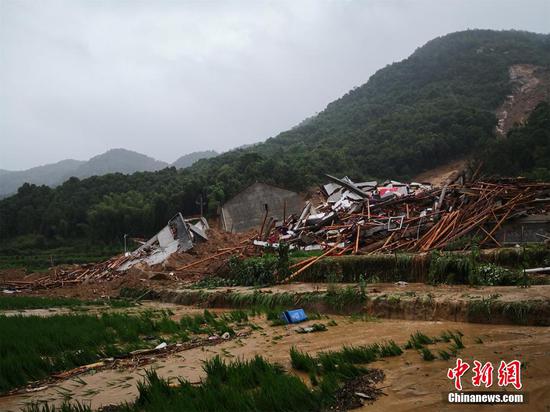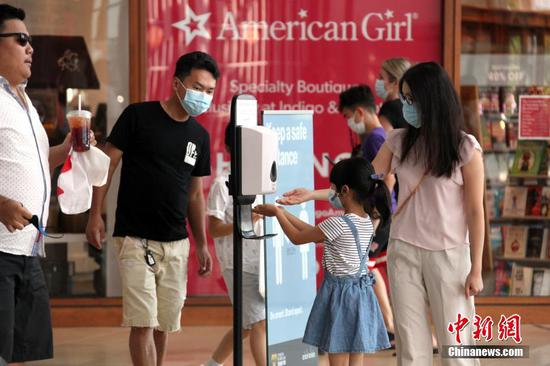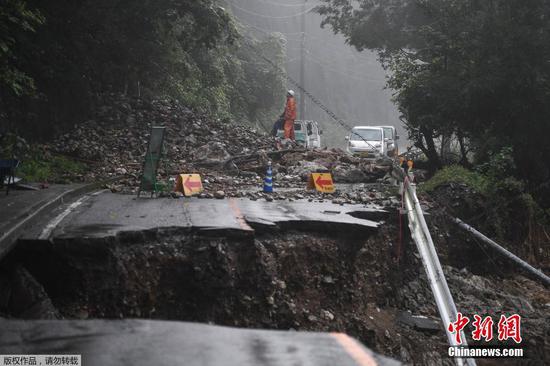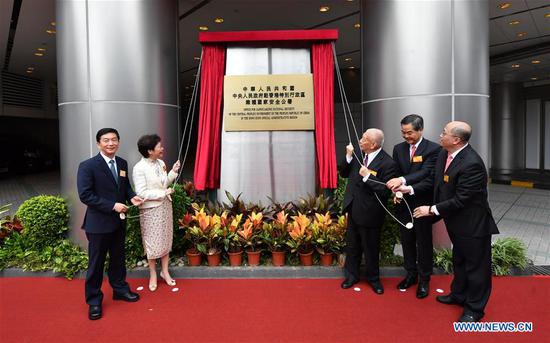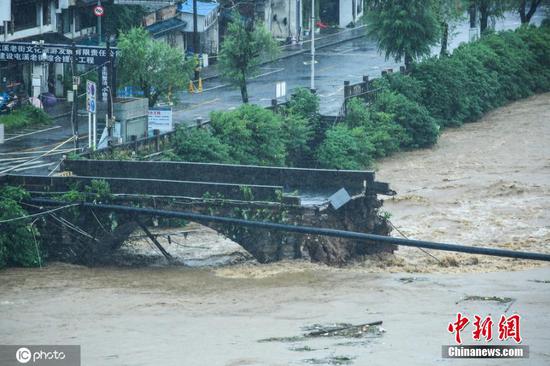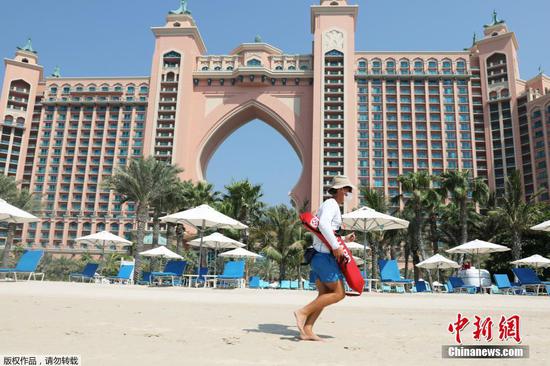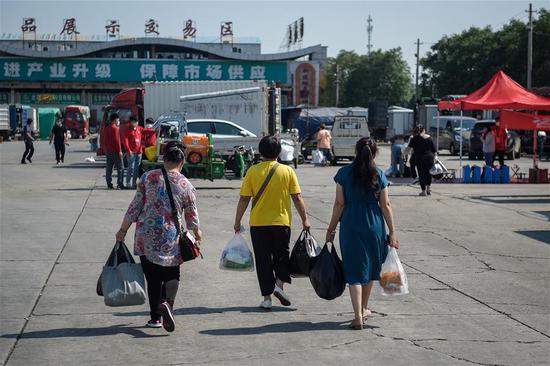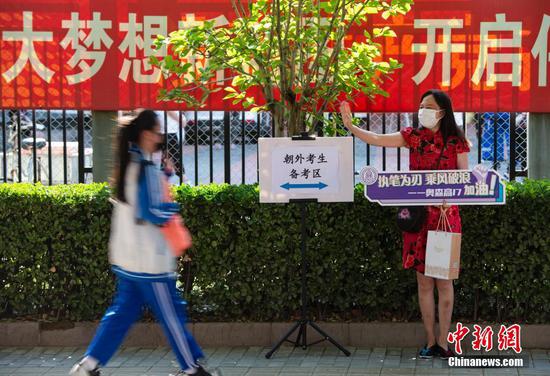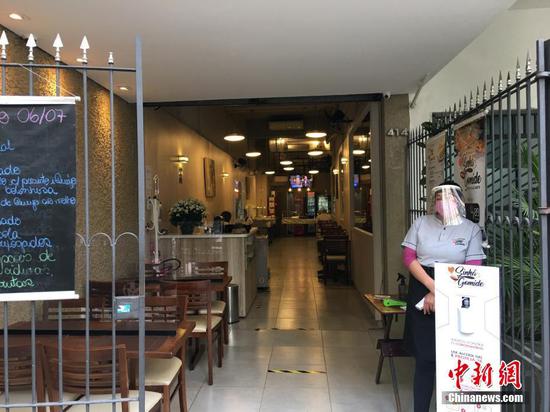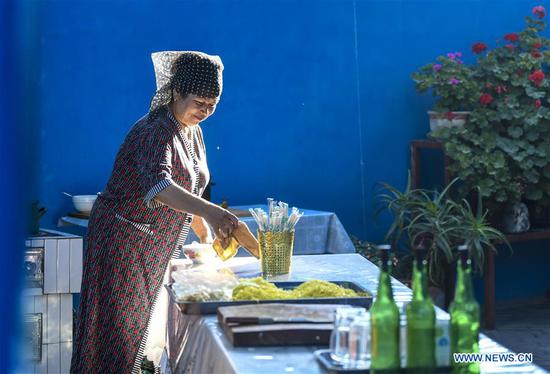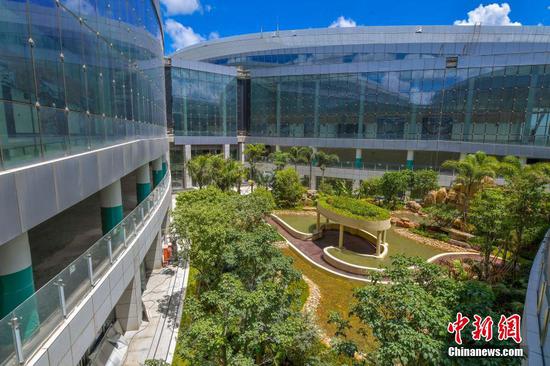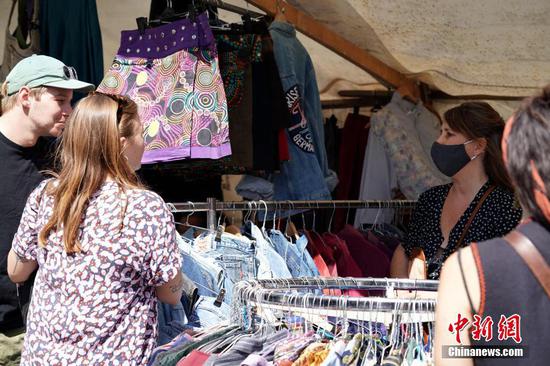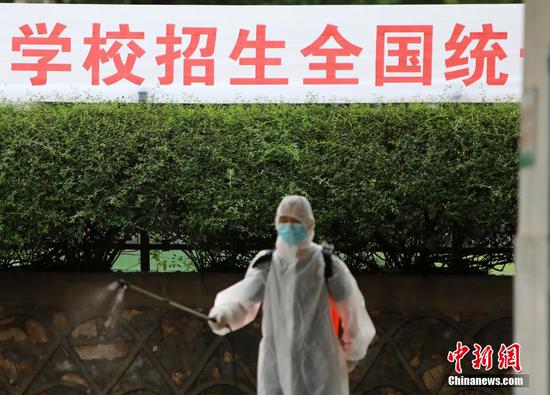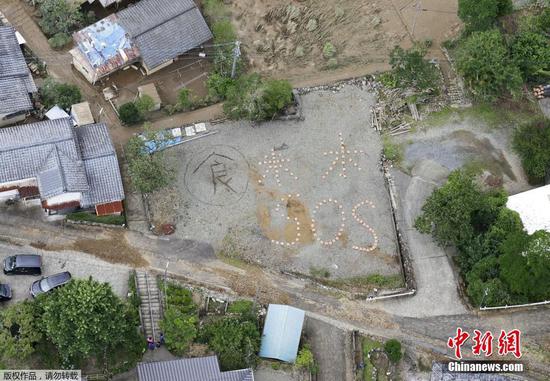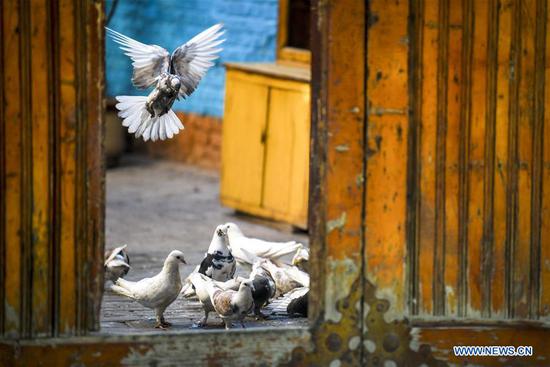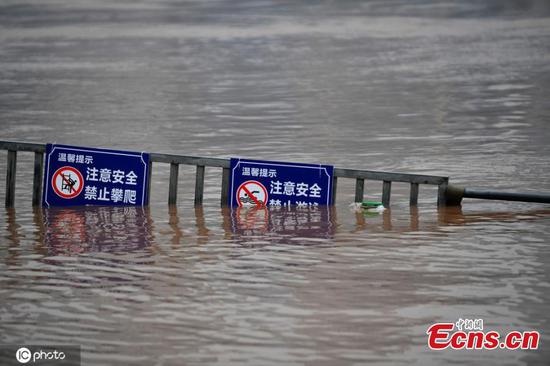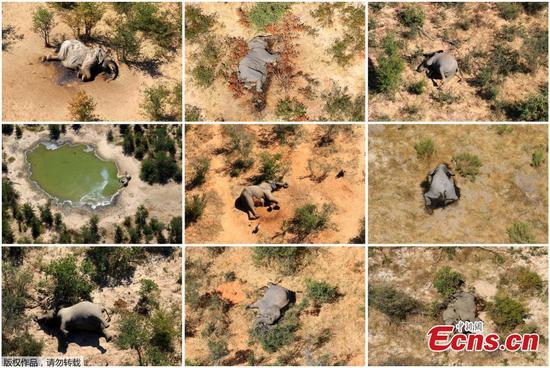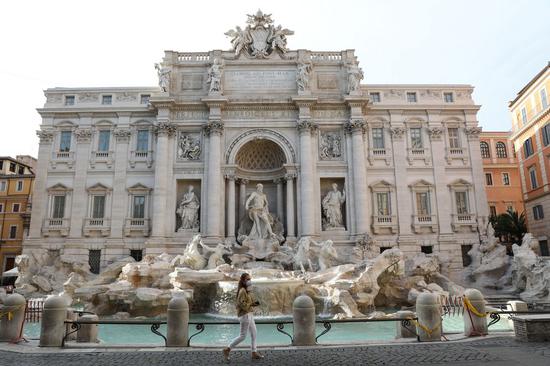
A woman wearing a face mask walks past Fontana di Trevi in Rome, Italy, April 30, 2020. (Xinhua/Cheng Tingting)
Operators in Italy's sprawling hotel industry know they will be among the last economic sectors to completely recover from the global coronavirus pandemic.
Hotels were allowed to reopen starting in early June. But more than a month later, hotel industry group Federalberghi estimates that only around half of the country's 33,000 hotels are open and the vast majority of them are operating at 15-percent capacity or less. And those figures include hundreds of seasonal hotels, such as those at the seaside or near lakes or other popular summer venues.
In Rome, excluding seasonal properties, only around 200 of the city's 1,200 hotels are open for business.
"There is just no demand for hotel space," Giuseppe Roscioli, president of hotel industry group Federalberghi Rome, told Xinhua. "We're hopeful the numbers will climb gradually from this point, but we know it will take a long time to get back to the way things were before the coronavirus crisis."
Roscioli said there are many reasons that are the case. Many people are still too worried about the lingering impacts of the pandemic to travel and after weeks of the coronavirus lockdown some people who would like to travel lack the resources to do so, meaning they are more likely to stay with friends or make day trips. Additionally, European Union borders remain closed to would-be tourists from dozens of countries where the coronavirus infection rates remain high.
Still, some hotel operators decided to open despite the challenges they face.
"A good hotel is like an athlete who has trained for an event," Luca Nicolotti, owner of Rome's Hotel Forty-Seven, said in an interview. "The building itself needs maintenance and the staff needs to be prepared to do their jobs. I hope things will return to normal once there is a vaccine, but just like the athlete who needs to train to compete at a high level we need to open now to be ready for when things return to normal."
Nicolotti said the 61-room hotel has not had more than ten rooms occupied since it reopened weeks ago. Most of the guests he's had so far came to Rome for business reasons rather than for tourism.
Carlo Riccioni grew up in the hotel industry and, with family members, he is part-owner of three hotels in Rome, ranging in size from 15 to 60 rooms. As of early July, the middle-sized property -- the 40-room Yes Hotel, near Rome's main train station -- has reopened.
"It was an emotional moment to see the first hotel guest walk through the doors after so many weeks of being closed," Riccioni told Xinhua. "We're hoping for the best but it is very strange to work in the current context. I hope we will see some good news soon when it comes to the virus."
Riccioni said that before reopening he spent ten days disinfecting the Yes Hotel property and training employees on new safety protocols, including social distancing, the use of masks, and the regular sanitization of the property.
"It's a lot more work to host a guest now than it would be under normal circumstances but we cannot raise our fees to cover the costs because demand is already so low," said Riccioni, who said he remained unsure of when his family's other two hotel properties might reopen.
According to Roscioli, from Federalberghi, an uptick in travelers cannot come soon enough for most hotel owners.
"We're entering a stage in which as many as half of the hotels in Rome could be in danger of closing," he said. "It's having an impact on all hotels, whether large or small. The big ones are expensive to operate when they're only 10- or 15-percent full, and the small ones are often renting their properties, meaning they have to pay rent whether they have guests or not."










